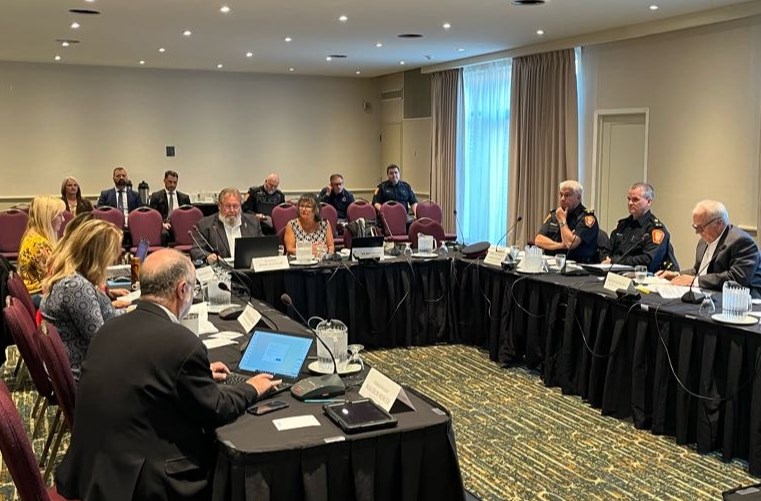THUNDER BAY – The Thunder Bay Police Services Board is weighing its approach to a planned staffing expansion, as the governance body looks to right itself after years of controversy.
Board members sent a proposed staffing model back to the drawing board at a meeting earlier this week, over fears it would not do enough to put the board on a path to stability.
As a result, the board may not have finalized a model – and therefore a firm staffing budget – by the time Thunder Bay’s city council approves police funding for 2024 in February.
The board’s indecision stemmed from questions over the proposed model’s reliance on all-contract and part-time staff.
Several members suggested a full-time staffer is needed to steer operations for the board as it looks to recover from a series of embarrassing missteps and controversies that have twice forced the province to step in and appoint an outside administrator in recent years.
The board, which oversees the Thunder Bay Police Service, has faced continued scrutiny over internal dissension, disarray and allegations of misconduct within the highest ranks of the force, and conclusions the board had not advanced many of the recommendations in the 2018 Sinclair report.
That report, prepared for the Ontario Civilian Police Commission, found the board had failed to provide leadership to address a clear pattern of systemic anti-Indigenous racism within the TBPS.
In response, the board has moved to bolster its staffing complement, with leaders arguing it is under-resourced to respond to those systemic failures while overseeing a police force that serves a city with some of the highest rates of violent crime in the nation.
The board has consistently overspent its budget in recent years, which it attributes to soaring legal costs and the work required to respond to recommendations included in the Sinclair report, the Broken Trust report, and the Seven Youth Inquest.
A memo from Secretary John Hannam presented at a Tuesday meeting said the board “has before it a workload and set of expectations that no other” police board in Ontario has.
That conclusion backstops the recommendation to hire a complement of four staff, while a review of comparably-sized police forces found most of their boards engage only one or two.
“There is a very significant body of work in terms of policy and in terms of building relationships between the board and the community, which will require substantial effort… in the coming months, and unfortunately probably in the coming years," said administrator Malcolm Mercer.
At the meeting, the board considered a staffing model developed by a working group composed of board chair Karen Machado, member Denise Baxter, Mercer, and governance committee member Donna Bain Smith and supported by Hannam.
The group proposed moving from the current model, which includes Hannam and an assistant to the secretary, both part-time contract workers, to a structure including four part-time contract employees.
Those would include an executive director, board administrator/assistant to the executive director, a strategic policy and stakeholder relations officer, and a policy researcher/writer.
Hiring contract staff would give the board greater flexibility to change the staffing model going forward, including potentially eliminating some positions as progress is made, Hannam's memo stated. It also listed advantages including avoiding the need to pay benefits and vacation entitlements.
Wayne Bahlieda was one of several police services board members to question the model on Tuesday.
“I’m having a hard time supporting [this] staffing model, on the basis that… I think what our board needs is a full-time employee,” he said. “We seem to always be in a reactive mode trying to catch up.”
“I would have assumed we would have been farther ahead in some of our structures, but we’re not. I see this recommendation as being a continuation of the status quo.”
Mercer called the debate a legitimate one, but said the board shouldn’t overlook the advantages of the proposed model.
“I can see advantages and disadvantages,” he said. “If you have a number of part-time people each with a different expertise, you may get skill on particular issues.”
Ultimately, the board voted to refer the staffing model back to the working group for redevelopment based on feedback supporting inclusion of full-time staff.
The four-person complement of part-time contract staff was estimated to cost the board as little as $150,000 – around what it spent on administrative services in 2023.
With that model rejected, however, an earlier estimate of $250,000 will remain in the 2024 police funding request that will be considered by city council during the municipal budget process in January and February.
It will be up to police services board leaders to justify that proposal to council, which is empowered to approve or reject the proposed police budget, though council’s decision is also subject to appeal.
